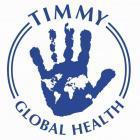-
About Timmy Global Health
Timmy Global Health is an Indianapolis-based nonprofit that expands access to healthcare and empowers students and volunteers to tackle today’s most pressing global health challenges.
In collaboration with our international and U.S. partners, Timmy sends medical service teams to support the work of international partner organizations, and channels financial, medical, and human resources to community based health and development projects. Through our work, we seek to strengthen local health systems while promoting a spirit of humanitarianism, global awareness, and a long-term commitment to ending health disparities amongst our students and volunteers.
Although we are based in Indianapolis, our reach is both local and global. We currently manage 10 project sites in 5 developing countries (Ecuador, Guatemala, Nigeria, the Dominican Republic, and El Salvador) and have student chapters at more than 50 universities and high schools throughout the US. What started in a hospital closet in Indianapolis has matured into a nation-wide non-profit that provides direct medical services to low-income populations around the world, while also building the capacity of partner organizations and empowering student volunteers to lead the fight for global health equity.
CHAPTERS (1)
|

